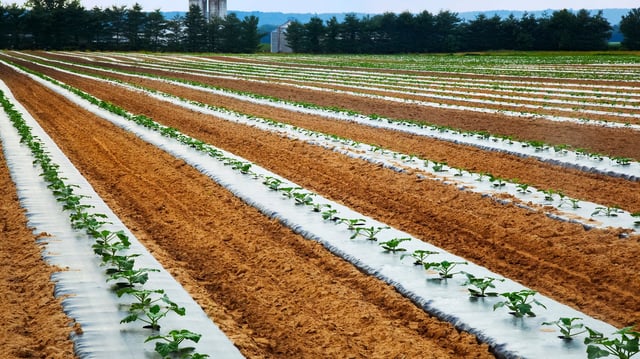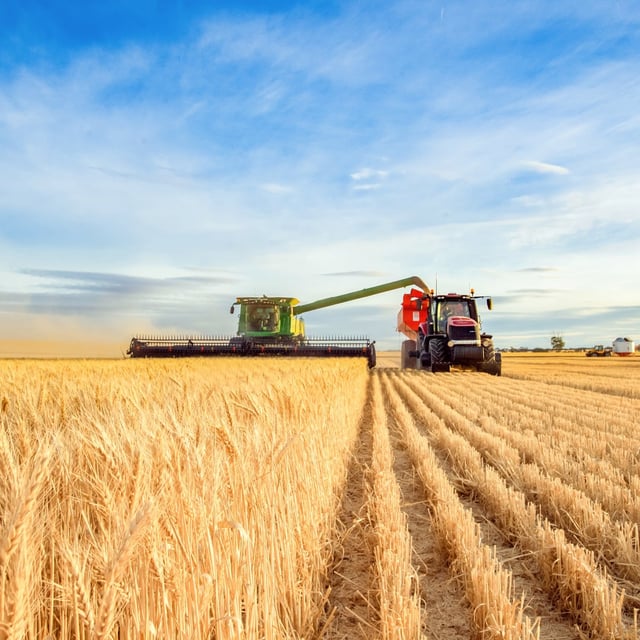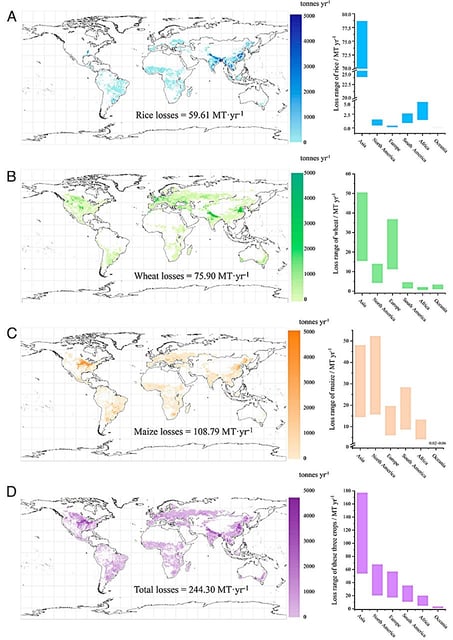Overview
- A study published in the Proceedings of the National Academy of Sciences reveals that microplastics reduce photosynthesis efficiency in plants by 7% to 12%, impacting both terrestrial and aquatic ecosystems.
- Key crops like maize, rice, and wheat are experiencing yield losses between 4% and 14%, with Asia being the most affected region globally.
- The reduction in photosynthesis also diminishes aquatic net primary productivity, threatening seafood supplies and marine food webs.
- Researchers estimate that microplastic pollution could place an additional 400 million people at risk of starvation within two decades, exacerbating global hunger challenges.
- Efforts to mitigate microplastic pollution could significantly reduce these losses, but scientists stress the need for more robust data and international action to address the issue.


